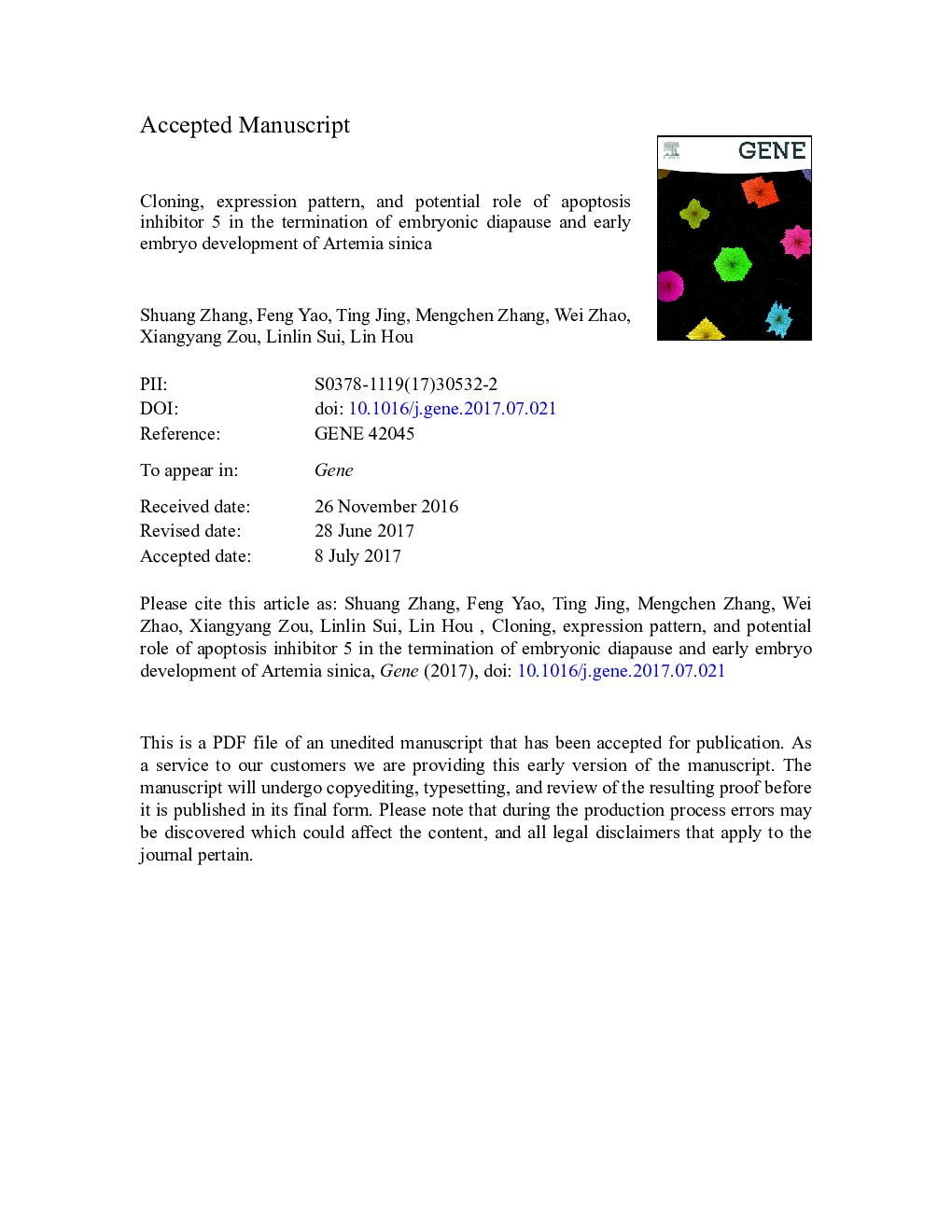| Article ID | Journal | Published Year | Pages | File Type |
|---|---|---|---|---|
| 5589178 | Gene | 2017 | 52 Pages |
Abstract
During the embryonic development of Artemia sinica, the diapause phenomenon can be induced by high salinity or low temperature conditions. The diapause embryo at the gastrula stage is maintained under the threat of apoptosis to guarantee the embryo's normal development. In this process, apoptosis inhibitor proteins play vital roles in protecting embryos against apoptosis. Apoptosis inhibitor5 (API5) plays a pivotal role in regulating the cell cycle and preventing programmed cell death after growth factor starvation. In the present study, we cloned the full-length cDNA representing the api5 gene from A. sinica (As-api5), which encodes a 372-amino acid protein. In situ hybridization experiments revealed that As-api5 expression is not tissue or organ specific. Quantitative real-time PCR analyses of the developmental expression of As-api5 showed that it reached its highest level at 10Â h, after which its expression decreased. High salinity and low temperature treatments increased the expression of As-api5. Western blotting was used to assess the abundance of As-API5 and related proteins (As-CyclinA, As-CyclinE, As-E2F1, As-CDK2, As-APAF1, and As-Caspase9). Downregulation of As-api5 expression using a short interfering RNA resulted in increased mortality and embryo malformation of A. sinica. Taken together, the results indicated that API5 plays a crucial role in embryonic diapause termination and early embryo development of A. sinica.
Keywords
Related Topics
Life Sciences
Biochemistry, Genetics and Molecular Biology
Genetics
Authors
Shuang Zhang, Feng Yao, Ting Jing, Mengchen Zhang, Wei Zhao, Xiangyang Zou, Linlin Sui, Lin Hou,
